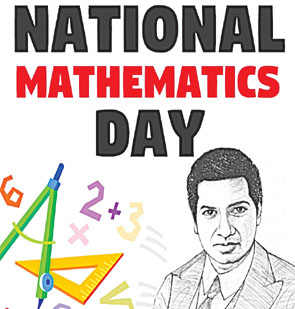
Kolkata, Dec 22 (FN Agency) Mathematics is an incredibly important concept – one that we inevitably and unintentionally use to solve everyday problems. The laws of mathematics govern everything around us, and without a good understanding of them, one can encounter significant difficulties in life. As a subject, students have polarised views around it, while some might find it interesting and easy to understand, most believe they do not have the ability to solve math problems, according to Anita Kishor, Teacher and Chief Strategy Officer, BYJU’S In fact, more than any other subject, math is considered something that people are either really good at or not. For students, it is crucial to understand that Math is not an innate skill and that it isn’t something we are “good” or “bad” at.
Mathematics can be learnt and bettered through simple strategies. It’s important to understand that Mathematics is a conceptual subject and is deeply seeded in logic. Every single math concept can be broken down into the basic fundamentals. To be able to learn advanced mathematical processes, students must first get a firm grasp of the fundamentals of math. Having the basics right will ensure that students ultimately save time and will significantly reduce their confusion while working on more complex problems. Research has shown time and again that hard subjects like Mathematics can be learnt very effectively online. With the current remote-learning scenario, students have a great opportunity to explore various online resources to help them ace math. Online learning can help students visualise a math problem and help them gain conceptual understanding while solving it.
Additionally, gamified content on various online learning platforms is an effective learning strategy because they engage students and provide them with incentives for continued practice. Students can learn key concepts through math games that keep them motivated. One of the most crucial ways to ensure students do well in Mathematics is for them to get hands on and actively practice the subject as frequently as possible. Solving math problems multiple times is a key learning aid because it helps transition problem-solving skills from the conscious to the subconscious. This method of learning will not only help rewire the mind to understand math problems but also helps students develop an affinity for the subject. As a teacher and a math-lover, I can say with certainty that proficiency in math is not restricted to those who have the aptitude for it. With regular and diligent practice, anyone can get better at math. The beauty of Mathematics lies in the logic behind its various concepts. While shortcuts and tricks have been used by students and teachers from time and again to simply math, these methods actually allow students to skip conceptual thinking.
Continuous use of shortcuts would lead to students carrying a big bag of tricks into an examination and not really thinking about the questions asked. Students must treat every single math problem as a new challenge and figure out the different ways in which it can be solved. More often than not students shy away from asking for help due to the fear of looking uninformed. In a traditional classroom setting, students find themselves trying to “catch-up” with their peers and often do not get their doubts resolved. As a teacher, I encourage students to not believe what they don’t understand and to keep seeking answers. Students must work on their confidence while asking for help to improve their competence. Today, with numerous online resources available at their disposal, students can also embrace a flexible format of learning, where they can learn a concept as many times as possible in an environment that is devoid of judgement and peer pressure.

